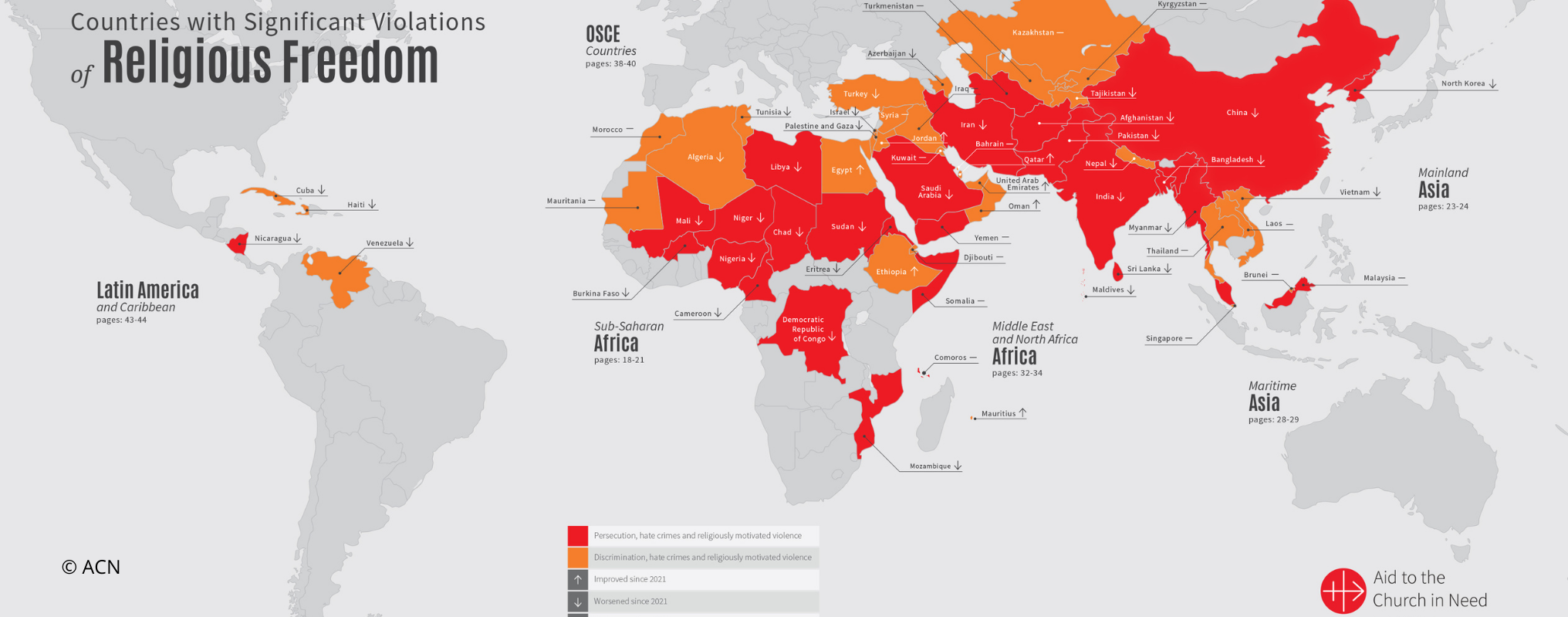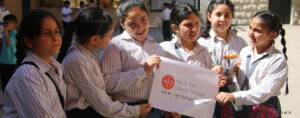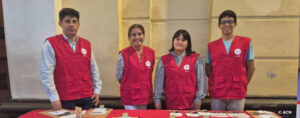Regina Lynch, executive president of Aid to the Church in Need (ACN), highlights the worrying increase in religious freedom violations around the world, but also the positive reaction to ACN campaigns such as Red Wednesday and One Million Children Praying the Rosary.
You were nominated executive president in April 2023. What is your view for the organization over the coming years?
Firstly, I am so grateful for the way ACN has developed since 1947. Over the years, we have become a stronger voice for persecuted or suffering Christians all over the world, raising awareness of their plight and supporting them with our prayers and our material aid.
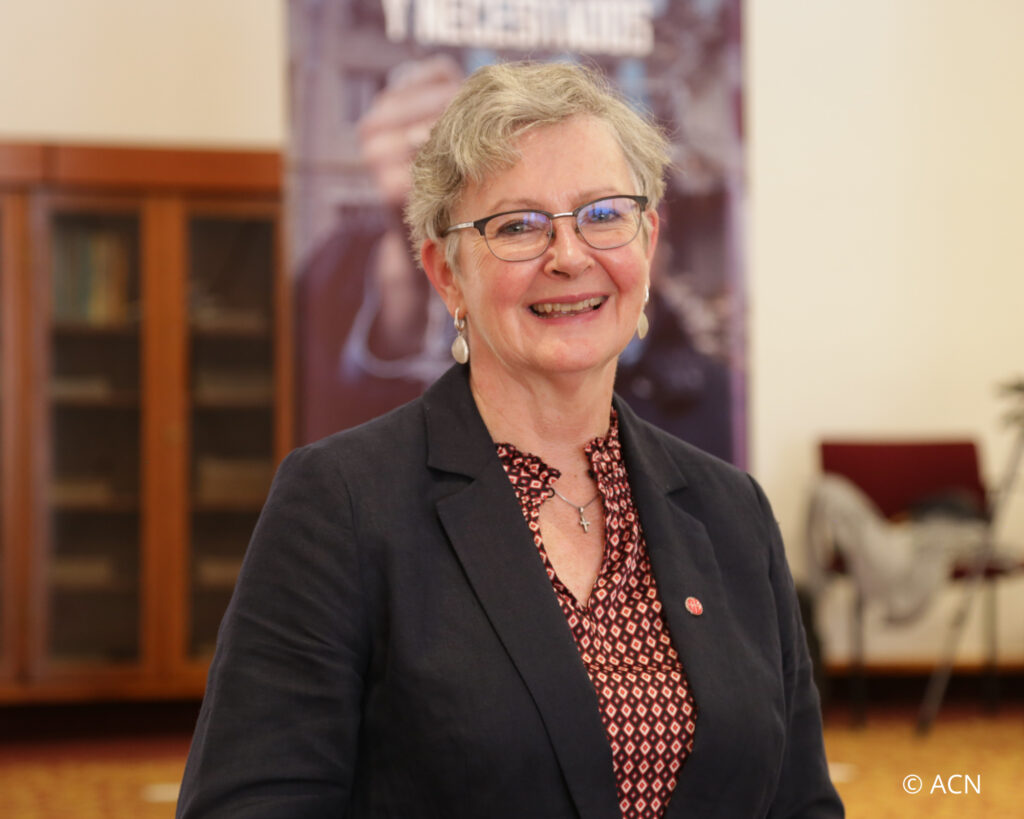
Sadly, though, there is still a lot to do, and my hope in the coming years is that we can become even stronger in carrying out this task, and more attached to our project partners, especially in countries where the Church is persecuted or suffering, through the many campaigns that we do, from awareness-raising to advocacy.
ACN published its Religious Freedom Report in 2023. What were the main findings?
We surveyed 196 countries, and we saw that religious discrimination and persecution have increased worldwide, and in 47 of those countries, the situation has worsened, which is pretty depressing. This includes large countries like India, China, and Pakistan, but also a lot of African countries, especially the Sahel region, in western Africa.
There are some countries where the situation has improved tentatively, like Egypt, but in 28 countries, we found explicit persecution, and 33 countries suffer discrimination. What we see is that 62% of the world’s population lives in countries where religious freedom is restricted or violated. That doesn’t mean that all these citizens are persecuted, but still, it is pretty sobering.
ACN has many projects in the Middle East. What is the situation like in the region now?
Obviously, the Holy Land is a major concern at the moment, due to the horrific conflict which is affecting the Christians very much in the West Bank, and also the little flock in Gaza. It’s very sad.
ACN has been trying to help, but there is a great worry that the conflict will flow over into Lebanon, which is still the country in the Middle East with the biggest concentration of Christians. This would be dramatic because we know that Christians across the region are tempted to leave.
In Syria, we cannot talk about persecution per se, but we are heading into the thirteenth year of war. There is still a lot of conflict, and the earthquake made life even more difficult. There is always the danger that Syria is going to slip off the radar, so for us it is important that we keep focusing on that, to remind people of what has happened.
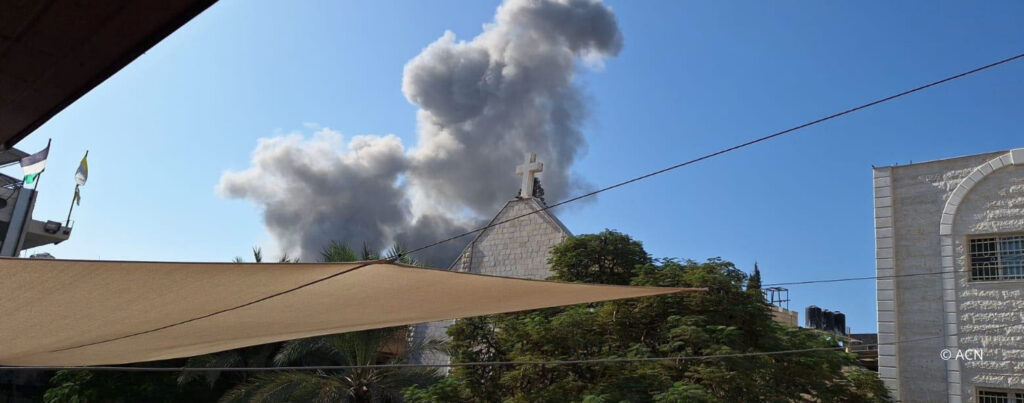
As for Iraq, the situation improved to a certain extent for the Christians after Pope Francis’ visit in 2021, and when we went back the next year, we felt maybe there was more hope, but we don’t know how it is going to develop. The Christians see some positive signs, but they also feel uncertainty: is it going to erupt again? What might happen?
ACN warns that Asia threatens to become the new focus of anti-Christian persecution. How bad is the situation there?
Asia is, indeed, a continent that worries us. There are problems in many countries, like China, but in others the situation has been getting visibly worse. It is important to mention India, which is also a huge power. Although its constitution guarantees religious freedom, and the country has a distinct form of secularism that strives to be tolerant, since Prime Minister Narendra Modi came to power, we have seen it going downhill, with less tolerance for minorities, such as Christians and Muslims. At the moment, there are 12 states with anti-conversion laws, which prohibit conversion to any religion other than Hinduism, and there have been many incidences of people being attacked, put into prison and falsely accused because of this. Despite all of this, the different Christian Churches are providing in the way of schooling, health and all the rest. So, I am not very optimistic for the way things are going in India, either.
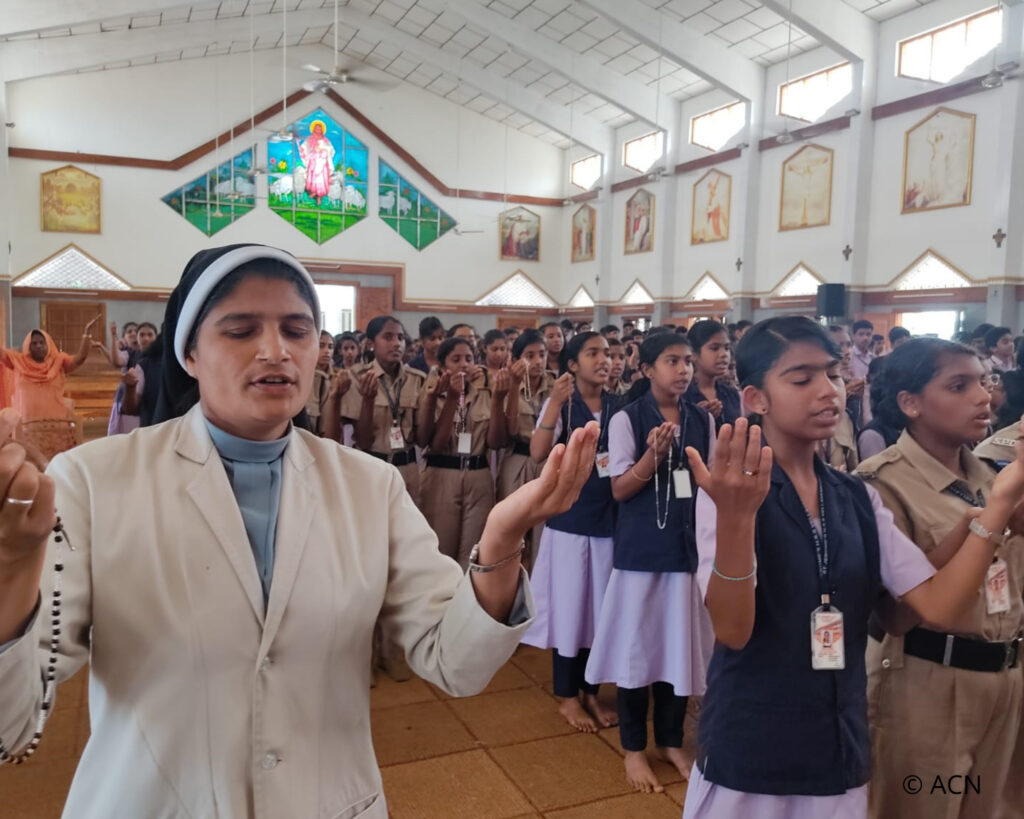
Looking to Europe, what are the big challenges for the Church in Ukraine, as it completes two years of war?
Nobody knows when the war in Ukraine is going to finish, and we continue to work with the Greek Catholic Church and the Roman Catholic Church in Ukraine to help the priests and the sisters survive and work with the IDPs, but the big issue at the moment that we hope to help with is the question of trauma healing. Everybody is affected in some way or another. The Church is aware of this and is striving to find ways to provide trauma healing for the population.
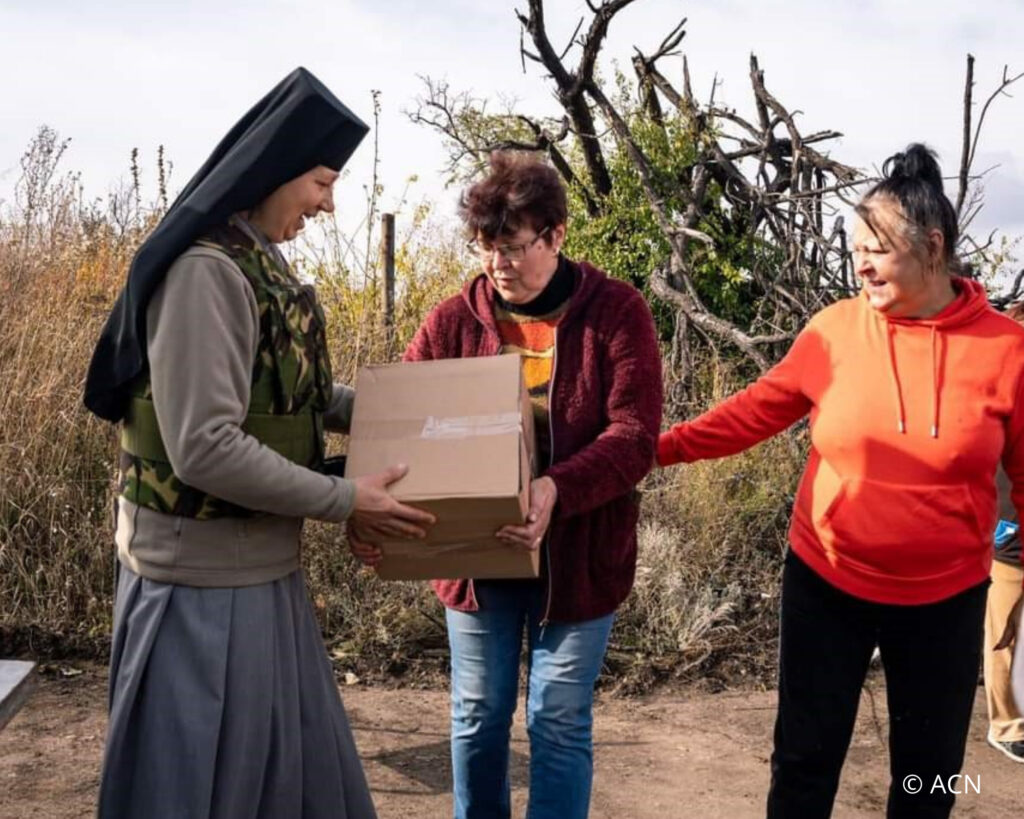
What about the Sahel region? You mentioned that there has been a rise in Christian persecution.
We intend to focus more on these countries in 2024. One of the worst affected by violence, perhaps after Nigeria, is Burkina Faso, where Jihadist attacks are spreading. And we want to focus on Mali and Niger, to help the Church aid the people who are displaced.
In Nigeria, there is great insecurity. The bishops have been asking us to help them to be more alert before an incident happens, with security around the parishes, because the priests want to stay with the people, although they have been targeted for kidnappings. (Please note that this interview was conducted before the massacres between December 23 and 26, which left almost 200 people dead, most of them Christians. Click here to learn more.)
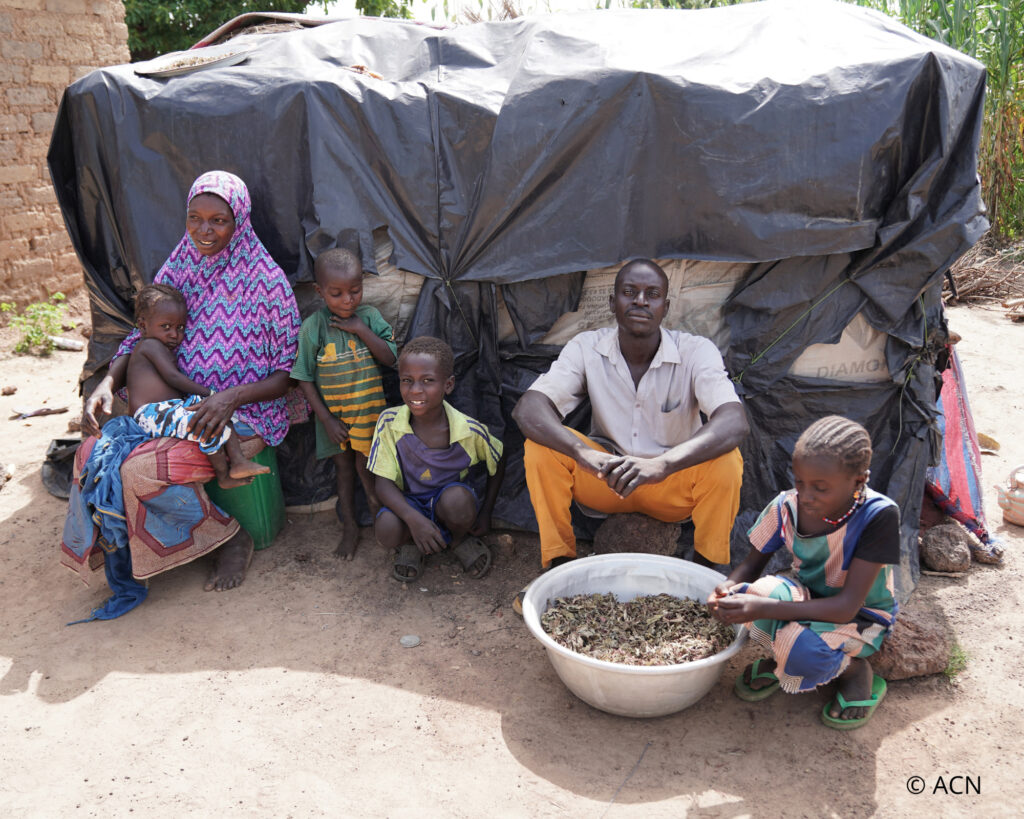
What about other countries in Africa?
We are very worried about the Democratic Republic of the Congo, where the situation could explode at any moment, as regional countries and armed groups fight for natural resources, bringing misery to the local population. The presidential and legislative elections were marked by violence. We must pray.
What regions of the world do you expect will be the principal focus of aid for ACN in 2024?
We will continue to focus very strongly on the Middle East, due to the very unstable situation and our concern that more Christians will leave the region; on Ukraine, because there is no indication that the war is going to end; Myanmar, where we watch the worsening violence and the humanitarian situation with concern; then the Sahel region – Nigeria, Niger, Mali, and Burkina Faso.
And, of course, we can’t forget Latin America, where anti-Church resentment has been spreading, despite the Church’s role helping society with education, healthcare, and the social teachings of the Church. We are particularly worried about Nicaragua, where dozens of priests were arrested during the year. Recently the vast majority were freed, but one bishop was left in prison, and another was arrested only days ago. Where will it end up? Only God knows.
One of ACN’s priorities is also spiritual aid, through prayer. How important is that?
We place prayer very much at the centre of what we do; it is extremely important. There are countries in the world where it might be difficult to help with material aid, or where situations are so bad that for the moment we cannot send aid, but what we can do is activate this wonderful group of benefactors that we have, a real powerhouse of prayer, and we are always asking them to pray for the persecuted and needy Church. We will do everything we can to preserve and nurture this.
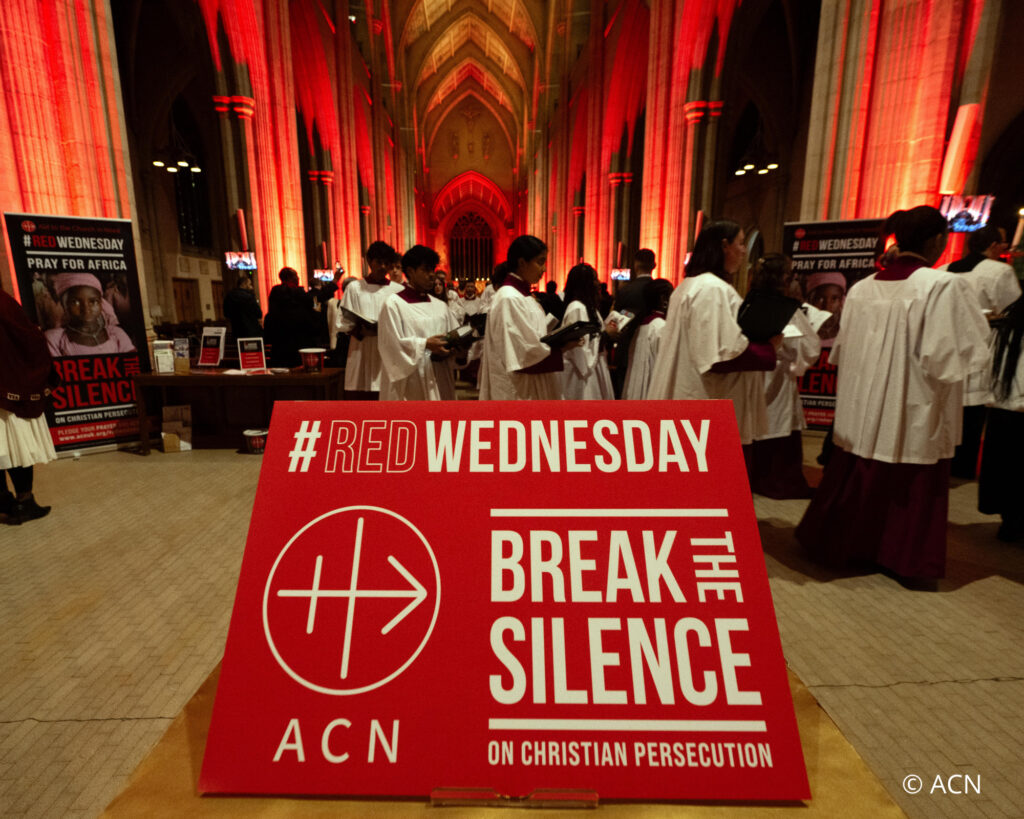
In terms of positive news and developments, what would you highlight from 2023?
Thanks to the generosity of our benefactors, this year we will end up supporting 5,500 to 6,000 projects worldwide. That is very positive. Being able to do so much work again this year, despite the economic climate, is really good news.
Also, this year confirmed that some of the initiatives we have been carrying out for several years, such as the Religious Freedom Report and the Red Wednesday initiative, have been growing. Many parishes are joining in. Political buildings are being lit red as well as church buildings. It is very impressive. We have more people joining in without us knowing. They just take the initiative themselves and do it.
And another initiative I really like is One Million Children Praying the Rosary, which we do on October 18. Our goal has always been to reach one million, and this year we went over the one million. So, I think this is great news, that you have one million children all over the world, praying for peace on the same day!

